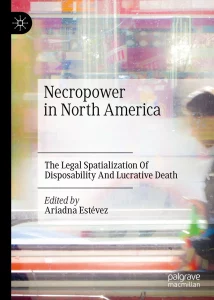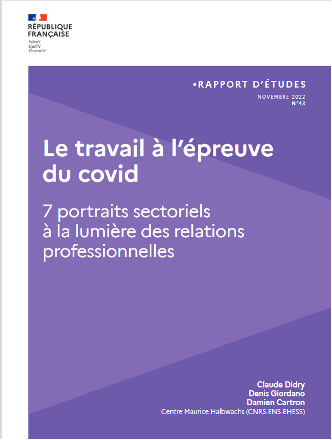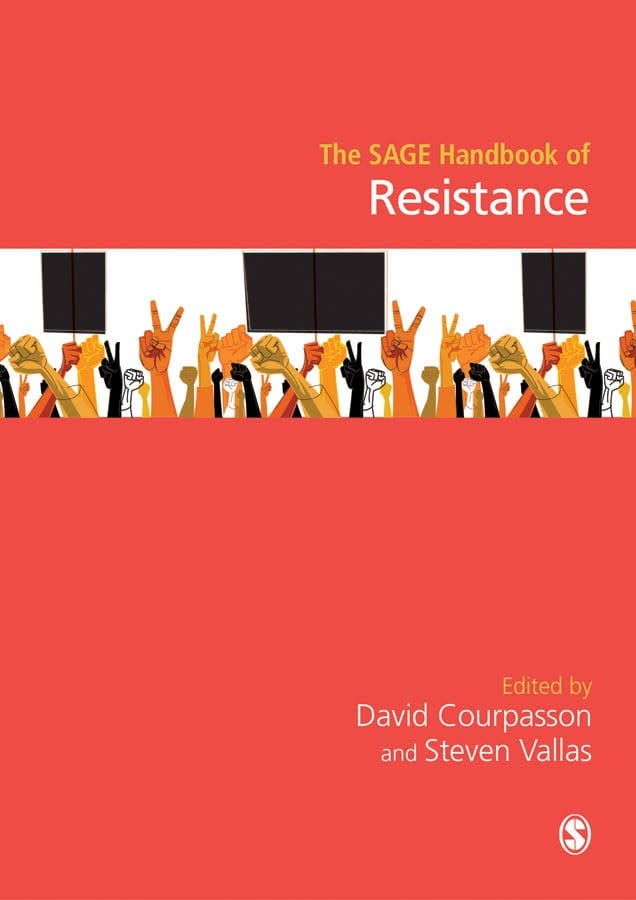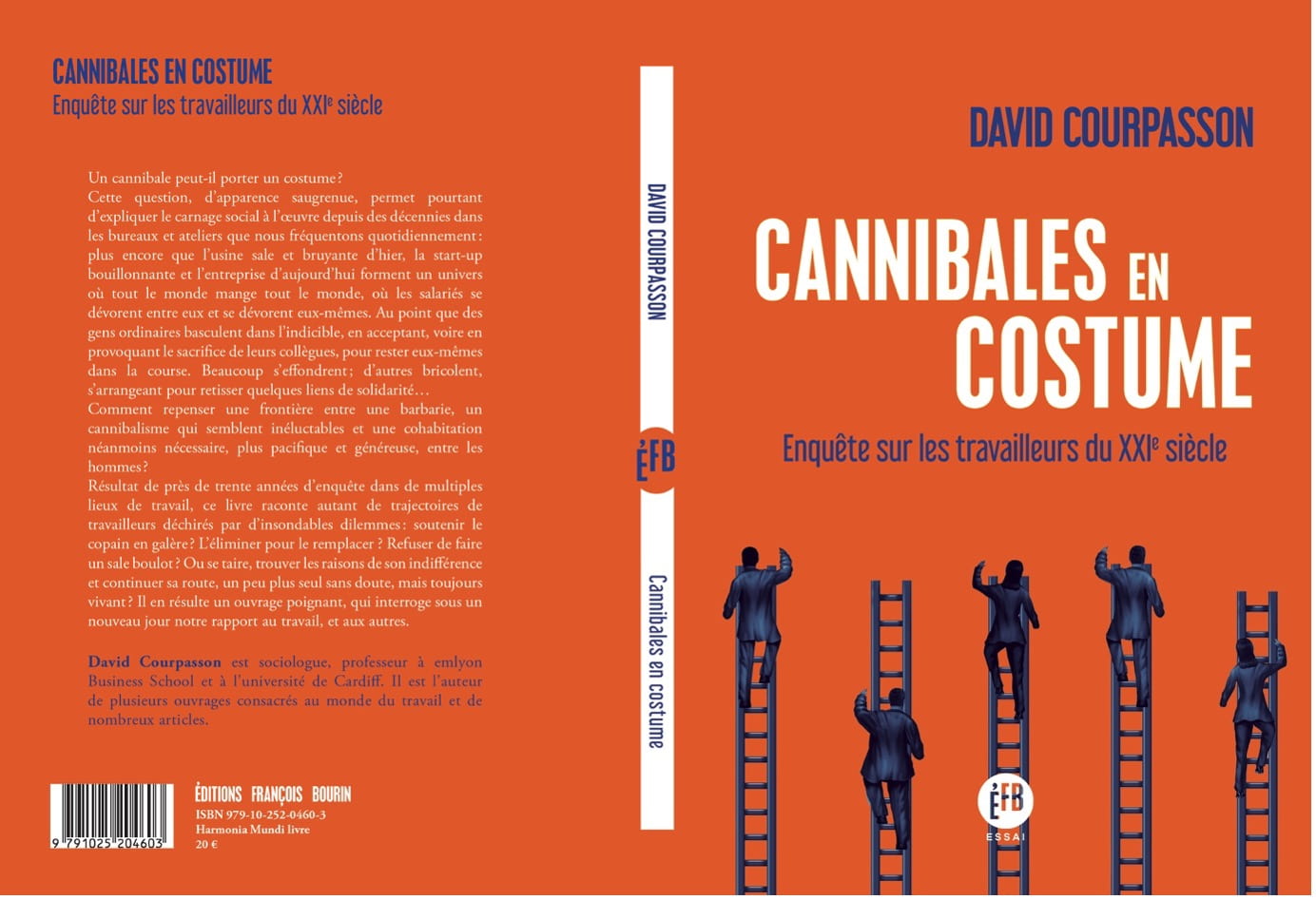This chapter explores the inclusion of people with invisible disabilities (IDs) (PWIDs) in the workplace, focusing on the complexities of disability disclosure. Companies face increasing pressure to meet quotas of disabled workers, raising tensions around disclosure. Disclosure ranges from surface-level to deep, with varying levels of visibility and risks, particularly for those with IDs who can conceal their impairments. The chapter discusses the benefits and challenges of disclosure, highlighting the significant emotional and physical toll of non-disclosure. It underscores the importance of accommodations, legal protections, and nuanced understanding for PWID, drawing on interviews with PWIDs and disability managers to illustrate these dynamics.
L’idée de ce colloque est née d’une rencontre, celle du Centre de Recherches sur l’Entreprise, les Organisations et le Patrimoine (CREOP) de l’Université Limoges, qui a cette originalité d’être un institut de recherche bidisciplinaire (droit et gestion), avec le comité d’organisation du Colloque Interdisciplinaire sur la Défaillance d’Entreprise (CIDE). Cette rencontre a d’ailleurs eu lieu à l’occasion d’un colloque du CREOP publié chez L’Harmattan (K. Lafaurie, A. Rivet (dir.), Résilence, rebond des TPE et PME en difficulté : Faut-il sauver l’entreprise quoi qu’il en coûte ? Regards croisés droit et gestion, 2022).
Créé en 2015, le CIDE est une manifestation scientifique qui rassemble de nombreux chercheurs et praticiens autour des questions liées à la défaillance des entreprises. Chaque édition met en avant un thème particulier de la problématique. Il était donc naturel que la 6e édition du CIDE ait pour objet de croiser les regards des juristes et des gestionnaires sur les concepts de la défaillance entrepreneuriale. Le croisement des regards va bien au-delà puisque des économistes et une sociologue ont été invités à enrichir la réflexion, grâce à leur point de vue et leurs recherches.
Cet ouvrage dessine les possibles contributions des recherches féministes francophones en sciences de gestion à l’élaboration d’une pensée critique sur le management. Les chapitres mettent en lumière la pertinence renouvelée du féminisme et son importance croissante dans le domaine du management depuis les années 1990. Dressant ainsi un état de l’art des travaux féministes en gestion, qu’il s’agisse de recherches en théorie des organisations, comptabilité, contrôle de gestion, gestion des ressources humaines, management ou encore entrepreneuriat, cet ouvrage a pour but de lutter contre la marginalisation des approches féministes en sciences de gestion. Plusieurs grandes thématiques sont abordées : les notions d’égalité et d’inégalités de genre dans le monde du travail, la ségrégation de genre et les normes genrées au sein des organisations et la pertinence de la notion de genre pour analyser les rapports de domination en entreprise. L’ouvrage examine également les défis de traductions – linguistique, conceptuelle, corporelle et politique – inhérents à la production de travaux féministes. En conclusion, il dévoile les multiples visages des luttes féministes, leurs imaginaires et les espaces et modalités de leur déploiement. Enfin, l’ambition de l’ouvrage est de proposer de nouvelles avenues de recherche, fondées sur les riches travaux existants, mais également sur le questionnement des silences épistémiques qui traversent la recherche féministe en gestion.
Pérezts, M. (2024) Je est un homme. Réflexions sur le français, l’indicible femme et la quête d’une écriture nue, in N. Aumais et L. Dorion, Presses de l’Université de Laval, 466 p.
The necroempowered agents in North America not only continually commit murder and profit from it, but—literally and worse still—lawfully get away with it. This chapter argues that it is essential—and urgent—to develop an understanding of the mechanisms producing and sustaining necropower and disposability in North America at the epistemic level, and to do so in a way that breaks free from the epistemic coloniality that plagues most research. Four epistemic mechanisms sustaining the order of necropowers in the region are identified and analyzed: normalization of violence and death, masculinization, marketization and derision. Shedding light on these four epistemic mechanisms allows the researcher to bring forward three contributions. First, theoretically, a better understanding of the epistemological frame constructing and perpetuating this particular organization of death by design can foster more effective documentation of necropowers’ empirical materializations. Second, this epistemological understanding has organizational and managerial implications for those—leaders, policymakers, associations, civil society—seeking to resist instances, knowledge claims, discourses and agents of necropower. Finally, this develops an epistemological contribution by thinking such matters from the ‘margins’, with a critical and transformational purpose.
As a conclusion for this edited book, this chapter comes back to three issues: appearances in and beyond organizing, subjectivity and subjectivation, and the future of phenomenologies in Management and Organization Studies (MOS). Potentials for expanding and decentering MOS concepts with and through phenomenological perspectives are discussed in regard to process philosophy, pragmatism, and critical theory. We argue that managerial and organizational phenomenologies and post-phenomenologies could go beyond a unilateral relationship with philosophy as a field. They could become the new ontological or metaphysical ground of organizing. The chapter is an opportunity both to summarize what are seen as key lessons of the experience of this book and to direct our gaze towards such potential avenues for discussion.
Phenomenology and phenomenological concepts have been part of Management and Organization Studies (MOS) since the discipline emerged. This chapter seeks to provide a comprehensive literature review of academic journals and to make visible the subtle but increasing presence of phenomenology within MOS. First, the chapter explores the relations between phenomenology and other theoretical streams—institutionalism and neo-institutionalism, pragmatism, process philosophy, and critical- and post-Marxist theories—in the context of MOS. Second, it focuses on the presence of phenomenology in key debates in organisational studies (embodied knowledge and learning, business ethics, spatiality and temporality of organizing, practice-based views, etc.). Lastly, this chapter outlines the realised and future potential contributions of phenomenology in exploring ongoing trends and practises in contemporary organisations, especially the move towards remote modes of working and decentered management. In that sense, issues of time, space, embodiment, and communalisation become fruitful avenues for phenomenological approaches in MOS.
Phenomenologies are a major stream of philosophy. Our aim with this Handbook is to explore critically and reflexively the plurality of phenomenologies and their becoming in the context of Management and Organization Studies (MOS). We detail in the introduction the genealogy of the phenomenological moment and make a distinction between four streams of phenomenologies: phenomenology as a phenomenological moment, post-phenomenologies, ante-phenomenologies, and non-phenomenologies. Beyond many clichés about phenomenologies, we argue that phenomenologies cultivate critical perspectives, ontologies, and even, for some of them, metaphysics that make them particularly interwoven with other philosophical traditions. We draw implications for MOS as a field.
The ways in which organizational phenomena manifest or appear to us, unavoidably echo the inter-corporeal experiences of the involved parties, including those of the researcher, who later writes about them. However, despite dealing with issues of sensorial perception and an embodied presence in the world, phenomenological reflections often remain paradoxically ‘disembodied’. This paradox, seldom voiced or addressed explicitly, carries numerous power implications in terms of what is rendered visible and what is, on the contrary, invisibilized in everyday organizational life but also in Management and Organization Studies (MOS) research. Drawing inspiration from feminist phenomenology, and in particular Sara Ahmed’s work on queering phenomenology and Audre Lorde’s perspectives on the erotic, we make a case for an erotic approach to phenomenology. This erotic angle leads us to avoid considering bodies as abstract existences, considering them instead as agentic and relational (i.e. desiring) subjectivities in their nakedness, diversity, and gendered character. We problematize the sexual gaze that traditionally associates nakedness with inferior representations of the erotic associated to shame and objectified vulnerability and identify perspectives for writing phenomenally (about) organizational phenomena through an embodied knowledge stripped of the traits of the dominant masculine academic order. By queering organizational appearances, the erotic then becomes a source of power, and unveils a myriad unseen and therefore unproblematized questions for phenomenological approaches in MOS.
The importance of relationality in ethical leadership has been the focus of recent attention in business ethics scholarship. However, this relational component has not been sufficiently theorized from different philosophical perspectives, allowing specific Western philosophical conceptions to dominate the leadership development literature. This paper offers a theoretical analysis of the relational ontology that informs various conceptualizations of selfhood from both African and Western philosophical traditions and unpacks its implications for values-driven leadership. We aim to broaden Western conceptions of leadership development by drawing on twentieth century European philosophy’s insights on relationality, but more importantly, to show how African philosophical traditions precede this literature in its insistence on a relational ontology of the self. To illustrate our theoretical argument, we reflect on an executive education course called values-driven leadership into action, which ran in South Africa, Kenya, and Egypt in 2016, 2017, and 2018. We highlight an African-inspired employment of relationality through its use of the ME-WE-WORLD framework, articulating its theoretical assumptions with embodied experiential learning.
Les migrations et les mobilités, subies ou choisies, affectent les enfants et les jeunes, qu’ils se déplacent seuls, en famille, accompagnés ou non, pour fuir la misère ou le conflit, tenter une aventure, étudier ou se former. Leurs migrations sont souvent ambivalentes : porteuses d’espoirs, de formes d’accomplissement et d’autonomisation, mais aussi de souffrances et de vulnérabilités. Les études récentes sur ces migrations mettent au jour le poids des inégalités – de genre, d’origine, de classe – dans les trajectoires, et soulignent les difficultés, les limites, voire les contradictions, des politiques publiques, aussi bien dans les domaines de la protection, de la scolarisation ou de la formation des enfants et des jeunes, que dans celui de la gestion des flux migratoires. Ce livre souhaite apporter de manière illustrée, située et nuancée des éléments pour mieux comprendre ces parcours, ces processus et ces tensions.
Donner voix aux récits des aspirations, des trajectoires comme des expériences des jeunes et des enfants constitue en ce sens un réel enjeu civique et politique
Le Centre Maurice Halbwachs analyse les transformations du travail, dans le cadre d’une crise sanitaire marquée par la mise en œuvre d’un régime de confinement à domicile. Ce rapport fait l’hypothèse que les acteurs des relations professionnelles ont été les protagonistes d’une adaptation massive de l’organisation du travail à partir du premier confinement de mars-avril 2020. Dans une orientation générale visant la pérennité des emplois, les mesures prises se sont attachées en premier lieu à organiser la poursuite du travail à domicile en se fondant d’abord sur le télétravail. Le chômage partiel intervient par défaut, pour des activités ne pouvant se replier sur le domicile. Enfin, les activités sur site demeurent une solution ultime réservée aux activités dites « essentielles ».
Occupy. Indignados. The Tea Party. The Arab Spring. Anonymous. These and other terms have become part of an emerging lexicon in recent years, signalling an important development that has gripped many parts of the world: millions of people are increasingly involved, whether directly or indirectly, in movements of resistance and protestation. However, resistance and its conceptual “companions”, protest, contestation, opposition, disobedience and mobilization, all seem to be still mostly seen in public and private discourses as illegitimate and problematic forms of action. The time is, therefore, ripe to delve into the concerns, themes and legitimacy. The SAGE Handbook of Resistance offers theoretical essays enabling readers to forge their own perspectives of what “is” resistance and emphasizes the empirical and experiential dimension of resistance – making strong choices in terms of how contemporary topics related to resistance help to rethink our societies as “protest societies”.
Un cannibale peut-il porter un costume ? Cette question, d’apparence saugrenue, permet pourtant d’expliquer le carnage social à l’oeuvre depuis des décennies dans les bureaux et ateliers que nous fréquentons quotidiennement : plus encore que l’usine sale et bruyante d’hier, la start-up bouillonnante et l’entreprise d’aujourd’hui forment un univers où tout le monde mange tout le monde, où les salariés se dévorent entre eux et se dévorent eux-mêmes. Au point que des gens ordinaires basculent dans l’indicible, en acceptant, voire en provoquant le sacrifice de leurs collègues, pour rester eux-mêmes dans la course. Beaucoup s’effondrent ; d’autres bricolent, s’arrangeant pour retisser quelques liens de solidarité… Comment repenser une frontière entre une barbarie, un cannibalisme qui semblent inéluctables et une cohabitation néanmoins nécessaire, plus pacifique et généreuse, entre les hommes ? Résultat de près de trente années d’enquête dans de multiples lieux de travail, ce livre raconte autant de trajectoires de travailleurs déchirés par d’insondables dilemmes : soutenir le copain en galère ? L’éliminer pour le remplacer ? Refuser de faire un sale boulot ? Ou se taire, trouver les raisons de son indifférence et continuer sa route, un peu plus seul sans doute, mais toujours vivant ? Il en résulte un ouvrage poignant, qui interroge sous un nouveau jour notre rapport au travail, et aux autres.
In this first book published in 2018, Guillaume Dumont follows world-class professional climbers around Europe and the USA to explain how they make a living out of their sport. By zooming into the struggles and dilemmas caused by self-branding pressure and sponsorship contracts, the book uncovers how social media and the demand for visibility shape the meaning athletes imbue in their everyday work and live.
Preface by Pierre-Michel Menger, Collège de France.
Reviews in scholarly press: Revue Française de Sociologie, Revue STAPS, Sociologie du Travail.
Reviews in popular press: Le monde Diplomatique, Liberation, Revista Escalar, Pop Science, Public Senat (TV).
Action sports have undergone dramatic growth, commercialization, and institutionalization over recent decades. This book uncovers the social, political, economic and organizational dynamics of their professionalization. After sketching some of the main transformations at stake in the field, the contributors provide novel insights into the changing structures in the action sports industry and the effects on athletes, coaches, agents and the cultures more broadly. Such trends came to the fore in the inclusion of surfing, skateboarding, sport climbing and BMX freestyle into the Tokyo Olympic Games. The book explores the working lives of action sports athletes, more specifically when it comes to their social media practices and the commercial pressure emerging from sponsors, and it also provides key insights into the institutionalization and professionalization of action sports amid ongoing processes of globalization, commodification and incorporation. Overall, the book reveals how different action sports (i.e., snowboarding, surfing, kiteboarding, parkour, climbing, skateboarding), and across countries, are at various stages in the professionalization process, with local, national and international responses and reactions to such trends differing considerably.
Phenomenological approaches to Management and Organization Studies offer a means to problematize ‘appearances’ in the field, allowing us to ‘see’ things in a different light and uncover what is hidden from our consideration by our theoretical or ideological assumptions. This handbook aims at showing the unexpected richness and diversity of phenomenological and post-phenomenological thinkers such as Husserl, Heidegger, Merleau-Ponty, Arendt, or Scheler, as well as others belonging to the French new phenomenology (Marion, Henry) or the German neo-phenomenology (Schmitz). It also details the contributions of thinkers like Bachelard, Deleuze, or Foucault whose inscription and departures from phenomenology are illuminated. In this process, phenomenologies are historically, critically, and openly discussed by leading scholars while highlighting the interweaving between phenomenologies and other streams such as process studies or critical perspectives. Beyond a theoretical description, the chapters also show how phenomenologies and post-phenomenologies can help management and organization scholars and students to understand a huge variety of contemporary phenomena such as distributed collective activity, artificial intelligence, digitalization of organizational processes, remote work, financial markets and financial instruments, entrepreneurial events, cinematographic organizing of social media, issues of place and emplacement, commons and communalization processes and questions of embodiment and disembodiment at work.
AdDress
emlyon business school
144 -146 Avenue Jean Jaurès,
69007 Lyon
Contact us
Guillaume DUMONT
gdumont@em-lyon.com
















